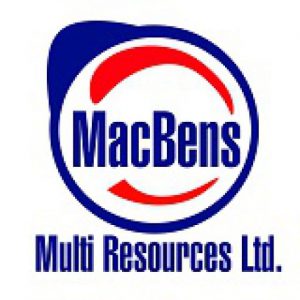Halal Food Safety Management System Lead Auditor Course

Halal food safety management system is the system integrated by the ISO 22000 Food Safety and the Halal 22 standard. Halal means permitted stuffs according to the Islam religion. We are the only one can run such a lead auditor course approved by IRCA.
Auditing the food safety management system of an organization as a third party, independently and partially, is sometimes becomes very tricky and difficult. Since the performance of a full food safety management system can only be identified by audits. Identification of the system performance and identification of effectiveness requires auditors with special knowledge and skills. This course is mainly for preparing the auditors with such knowledge and skills.
The aim of this course is to provide students with the knowledge and skills required to perform first, second and third-party audits of food safety management systems against ISO 22000 and Halal 22, in accordance with ISO 19011, ISO 17021 and ISO 22003, as applicable.
Course Program
Terms and Terminology Used in Halal, Food Safety and Auditing, Purpose & Benefits of Halal Food Safety Management, PDCA, Halal 22 requirements, Halal FSMS – Management and Planning Processes for safe and Halal food, Emergency Preparedness, Auditing Halal FSMS, Audit Types, Regulations & Other Requirements, Accreditation, & Certification, Benefits of Accreditation, People In The Audits And Responsibilities, Auditor Characteristics, Audit Process Exercise, Audit Objectives and Audit Scopes, Audit Duration, Auditor Selection and Audit Team Formation, Stage 1 Audit, Audit Planing, Check List Preparation, Opening Meeting, Interviewing, Stage 2 Audit, Nonconformity Identification, Audit Review, Closing Meeting, Nonconformity Recording and Reporting, Audit Reporting, Follow Up Audit & Corrective Actions.
What You Will Get?
By Attending this course you will be able to:
* How to audit the halal food safety management system effectively
* Distinguish the Halal and non halal (haram) foods
* How to make a process audit and a procedure or a clause audit in halal food safety management
* Prepare and plan audits in a risk based manner and effectively
* Behave as a successful auditor. Learn about the most effective auditing techniques
* Select the audit teams and evaluate their performances
* Effectively get prepared for an audit
* Effectively audit the processes assigned
* Evaluate the findings and the conformities, nonconformities and improvement points effectively
* Run opening and closing meetings and report the audits and nonconformities
* Effectively follow up the audit findings
* Explain the accreditation and certification
* Add new certificate to your carrier.
Who Should Attend?
Halal Food Safety management system lead auditor course is designed not only to help people perform capable and value-adding food safety system audits, but also to develop attendees wider understanding of food safety management systems design and implementation. Particularly helps to the attendees on main subjects such as planning a safe food, managing and ensuring the effective implementation of HACCP and OPRP Plans, Halal foods, objectives & targets, operational controls and compliance to the legislations.
Pre-Course Requirement?
This course is designed for experienced food safety professionals seeking an understanding of the management systems approach to food safety and the skills required to audit effectively against food safety management systems standards. It is not intended to be an implementer’s course, or one that will create an expert in food safety legislation, or one that will train to an acceptable level a student with no prior knowledge of the standard or of the food industry. Therefore, prior to attending this training course students must:
* Have experience of working within the food chain (refer ISO 22000 Figure 1), preferably with an understanding of implementing or operating a management system.
* Have an understanding of relevant key food safety legislation (this may be specific to their food industry context and location).
* Have an understanding of prerequisite programmes.
* Have an understanding of Good Practice guides for Agriculture (GAP), Veterinary (GVP), Manufacturing (GMP), Hygiene (GHP), Production (GPP), Distribution (GDP) and/or Trading (GTP) depending on the segment of the food chain in which the student operates.
* Have an understanding of the principles of HACCP as defined by the Codex Alimentarius. * IMPORTANT NOTICE That according to the Halal 22 standard only a Muslim can become Halal auditor.
Which Course After This?
After attending this course you might attend other CQI/IRCA Certified courses.
